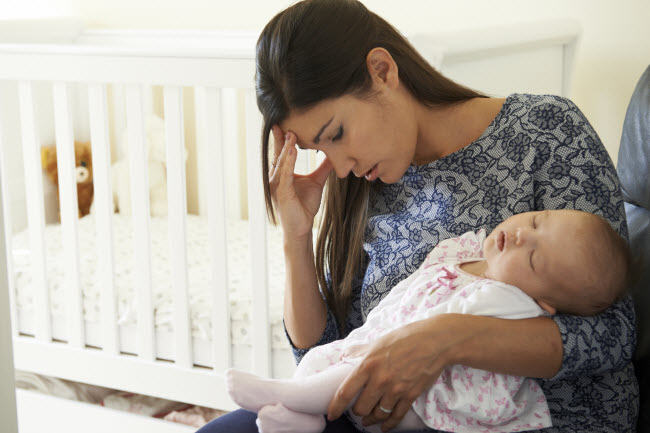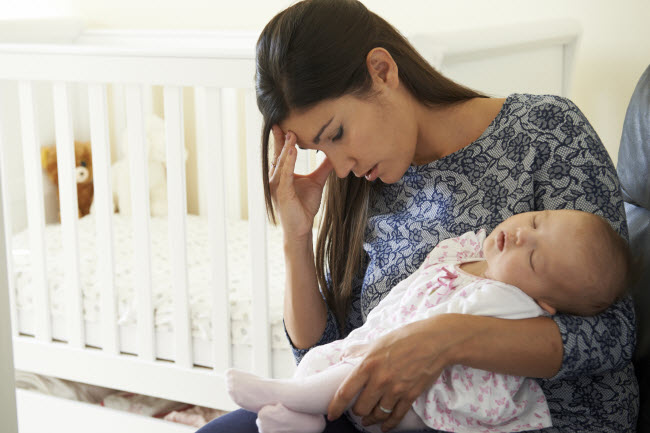Learn about brain health and nootropics to boost brain function
Is ‘Mommy Brain’ Real or a Just a Myth?

Here’s how it begins. You look for your phone while you are on your phone. You walk into a room on a mission but by the time you reach the room you’ve forgotten the mission. You cannot shop for anything without a list. Sound familiar? You are either a certain age, or a purported victim of so-called mommy brain.

But is “mommy brain” real? Do we really become more scatterbrained when we become mothers? Or is it just cultural bias that would have us believe that pregnancy and childcare impact a woman’s cognitive chops, long after baby is born? While there is some evidence to suggest that pregnancy affects the brain’s neuroplasticity, the jury is still out on whether these changes constitute a detriment.
How does pregnancy change the brain?
Pregnancy may change the brain through a process called neuroplasticity, which involves biological adaptations to new experiences. A 2016 landmark study in Nature Neuroscience found that even two years postpartum, women’s gray matter shrinks in areas involved in processing and responding to social signals.
This reduction in brain matter concerning social cues, however, correlated with an increase in attachment to the mother’s infant. What some call loss may actually be a ratcheting up of efficiency. A new mother’s brain becomes better wired to respond to their infant’s needs or to detect threatening people in their environments. The study’s lead author put it this way: “Gray matter volume loss can also represent a beneficial process of maturation or specialization.”
Herein lies the essence of the mommy brain debate: Is the memory impairment associated with child-rearing significant, or simply making way for what’s essential? Yes, you may forget someone’s name, but is this necessarily indicative of a decline in learning, reasoning and comprehension?
Or is it a cultural bias that our brains deteriorate?
Given the cultural bias, it can be that mom brain becomes a self-fulfilling prophecy. One 2014 study published in the Journal of Clinical and Experimental Neuropsychology
suggested that pregnant and three-month women are more apt to disparage their mental acuity. In the study, these women described themselves as cognitively “fuzzy,” but their cognitive performance was at much higher level than what they reported. Doom-sayers and peer pressure can make women feel that their intellect will inevitably be dulled by having kids.
But there is another, emerging narrative about the brain on motherhood. This one suggests that cultural messages to the contrary, women may become smarter and more creative after having children. It’s a reframe for sure, but one well worth considering. Motherhood, it suggests, make women, bolder, sharper and more focused. The science backs this theory up: Several studies have looked at how maternal rat brains work for clues to how pregnancy and childbirth impact a mother’s creativity. An article in The Atlantic cited a 2014 study in Hormones and Behavior that led the author to conclude:
“Prior to becoming a mother, she might have chased a cricket for food, “hither and thither, a haphazard pattern,” attracting predators, according to one study. Even after catching the cricket, it might have clumsily slipped from her grasp. But as a lactating mom, her method is “more direct and lethal.” She captures the cricket in 70 seconds—four times faster than non-mom rats—and does not let it go. She does not have time to waste. Her brain’s motor and sensory systems have sharpened.”
Is mom brain deficiency or advantage?
The upshot of recent research shows motherhood subtly alters the brain’s architecture. The brain adapts, but the impact of those changes depends on whether we look at them through an appreciative or derogatory lens. Addling or enriching? What side you come down may say more about cultural trends than you may realize.
Elizabeth Marglin
Elizabeth Marglin is a journalist/content creator whose favorite subjects are healthy living, sustainability, natural beauty, integrative therapies, mindfulness practices and parenting. She has been a regular contributor to the magazines Natural Solutions, Natural Health, FitPregnancy, Backpacker, and Colorado Homes & Lifestyles as well as the websites gaiam.com, deliciousliving.com, smartwatt.com, and the Huffington Post. She is also the coauthor of The Mother’s Wisdom Deck, a gorgeous inspiration deck designed for mothers. When she’s not perusing labels or creating new smoothie recipes in her Vitamix, Elizabeth can be found scheming up strategies to get her kids to eat their vegetables.
Click here to view full article